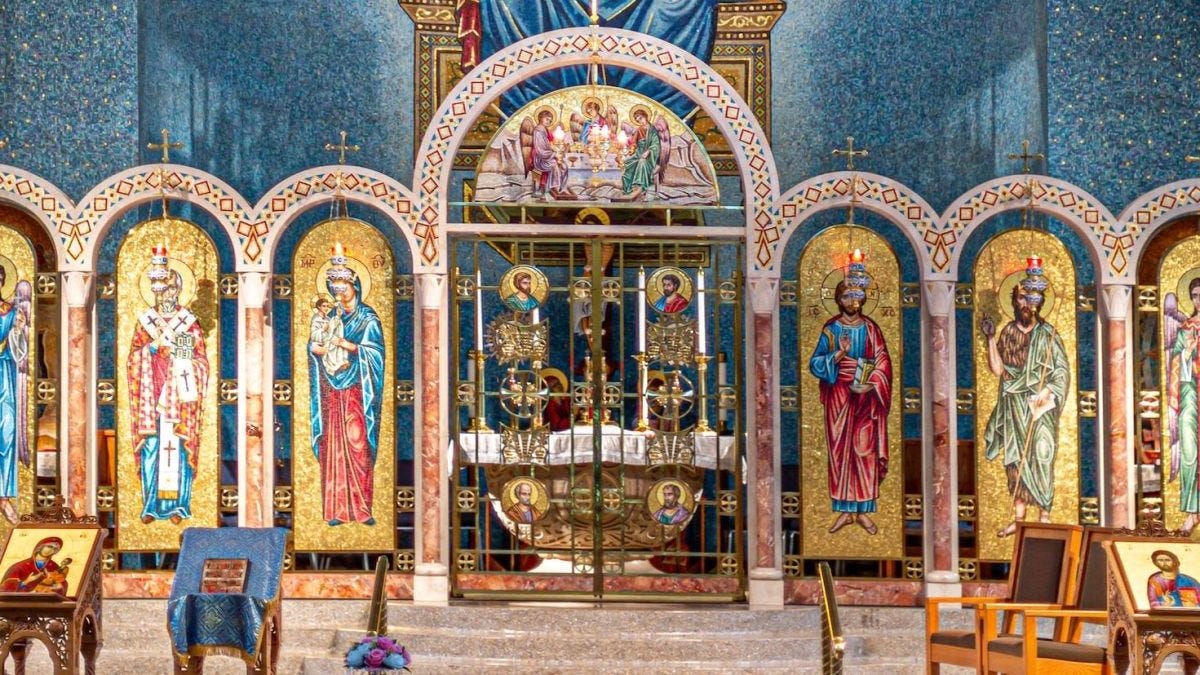Communicatio in sacris – Does Michael Lofton know what he is talking about?
What does Michael Lofton mean about communicatio in sacris and the legitimacy of attending non-Catholic rites – and does it match with the traditional teaching of the Catholic Church?

“It is not licit for the faithful by any manner to assist actively or to have a part in the sacred [rites] of non-Catholics.”
These notes are offered as a commentary on the extract which we recently published from McHugh and Callan on the question of Communicatio in Sacris, attending non-Catholic ceremonies. I have omitted references to McHugh and Callan, as they are all found in the extract in question.
Mr Michael Lofton recently claimed:
“[O]ne can attend an SSPX mass in some qualified cases (see the Monsignor Perl document we have discussed), as long as they do not formally adhere to the schism. If one formally adheres to the schism of the SSPX, then that is a grave sin. Same applies for an EO [Eastern Orthodox] liturgy, as I’ve stated before. In limited cases, one can attend an EO service, but if they formally adhere to schism, then that is a grave sin.”[1]
Setting aside his accusations of schism against the Society of St Pius X (accusations which I reject), is this general claim about attending non-Catholic rites true? And if so, what are the “limited cases” in which one can attend such liturgies?
In order to provide some answers, and to give an example of the pre-conciliar treatment of the subject, we previously published some relevant sections from McHugh and Callan’s Moral Theology.
We must start by observing that Mr Lofton’s statement is quite unclear. This is a standard topic, and – as the extract demonstrated – is treated with clarity in pre-conciliar works of moral theology. There seems no reason to depart from the language and distinctions which they give.
Given the way he discusses the topic in the comment above and elsewhere, it appears as if Mr Lofton has a broader set of cases in view than these moralists and commentators. In this piece, I’d like to consider how his ambiguous comments measure up to such a treatment.
Starting Points
Let’s start with the 1917 Code of Canon Law.
Canon 1258
§ 1. It is not licit for the faithful by any manner to assist actively or to have a part in the sacred [rites] of non-Catholics.
§ 2. Passive or merely material presence can be tolerated for the sake of honor or civil office, for grave reason approved by the Bishop in case of doubt, at the funerals, weddings, and similar solemnities of non-Catholics, provided danger of perversion and scandal is absent.[2]
Commenting on this matter, in terms which seems to be much more absolute than those of Mr Lofton, McHugh and Callan explain:
964. It is unlawful for Catholics in any way to assist actively at or take part in the worship of non-Catholics (Canon 1258). Such assistance is intrinsically and gravely evil; for […]
(b) if the worship is Catholic in form, but is under the auspices of a non-Catholic body (e.g., Baptism as administered by a Protestant minister, or Mass as celebrated by a schismatical priest), it expresses either faith in a false religious body or rebellion against the true Church.
These moralists consider various exceptions (such as those mentioned in the canon, as well as a few others), and apply the principle of double effect to these exceptions. Part of the principle of double effect is the existence of “a sufficiently grave reason for performing it [viz. the act, of assisting at a non-Catholic ceremony.]” (n. 961a). They also explain the meaning of merely passive assistance – viz., “if one merely assists as a spectator, and not as a worshipper” (n. 962).
It is not always possible to avoid scandal – sometimes scandal is an evil which must be tolerated in the application of the principle of double effect. But this principle, as stated above, pertains to a morally neutral act and a sufficiently grave cause.
Whether and when assisting at such ceremonies is morally neutral – and what might constitute sufficiently grave cause – are the very questions at hand. But Mr Lofton’s comments leaves these and other questions unanswered.
“Formal adherence to schism”?
Neglecting these distinctions, and making the central question whether one “formally adheres to the schism” (or heresy) of a non-Catholic group, suggests a misunderstanding of weightier points which need to be considered.
What exactly does it mean, to Mr Lofton, to “formally adhere to schism“?

